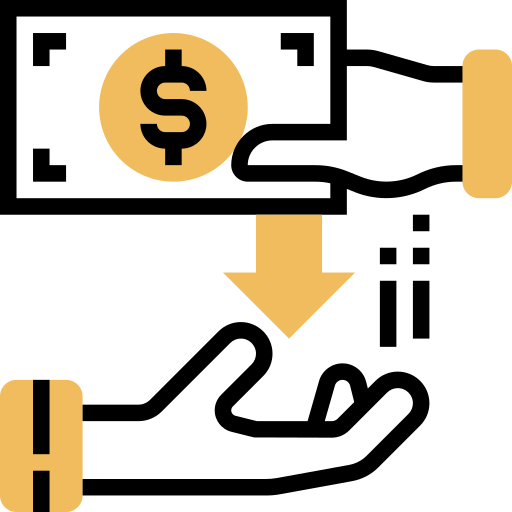- How does PLA differ from a typical General Contractor?

Our Pre-loss Assessment and Consultation provides a documented baseline We compile pre-inspection data, claims history, maintenance records and past storm data to determine the condition of your property prior to loss.
Insurance is necessary evil. No one needs it until disaster strikes. Working with your agent, we can help ensure your policy coverage is effective and comprehensive. We have strategies to guard against the rising cost of premiums and exorbitant deductibles.

We track natural disasters and weather events that may affect your asset. Often, we know you have damage before you do and already have a personalized plan in place to handle the loss.
Before a claim is filed, PLA deploys our team of specialists to conduct an independent and comprehensive damage assessment.
PLA supports and advises our clients on every facet of the claim process, from filing through complete restoration.

PLA only advises our clients to hire a Public Adjuster in rare or extreme cases. PLA is not a public adjusting firm.

Our team of engineers and project managers oversee everything, including: vetting contractors, bids, quality control, compliance and permitting, scheduling, inspections, safety, invoicing and bills payable, warranty and releases.

Claim funds are placed in a trust/escrow bank account. Funds are released for work performed and other expenses after receiving proper invoices, inspections and releases. Once invoices are reviewed and validated, both PLA and the owner must sign authorization to release funds. Every dollar received and spent is fully accounted for.

Upon completion of the scope of work, we file any supplements and proof of completed work with the carrier. And finally, we provide a restoration report that includes all documentation associated with the claim and repairs. Included are claim docs, invoices, OSHA documents, cost audits, financial statements, release of leans, warranties, inspections and permits. Everything you need to ensure your asset is fully insurable.
All contracts associated with the claim are administered between the insured and the trade. PLA will recommend vetted trades or vet trades on behalf of the insured prior to the client signing a contract. PLA will advise the insured on typical “gotcha” trade contract language to avoid. Additionally, PLA never touches the money and recommends the utilization of an escrow account to minimize the risk for all involved. The escrow account also creates a third-party audit trail of the funds on the back end of the claim. PLA is not aware of any other insurance claim related project management / general contractor company that doesn’t request all the funds and contract directly with their favorite trades.
Technically, yes, but not without risk. You can keep the initial funding (ACV) and not do the work, but in doing so, you will forfeit the balance of your claim (Depreciation), sometimes as high as 90% of the claim dollars. Additionally, if you have un-repaired damage, those items will be excluded in your next policy or upon renewal.
Post loss…. No, it is the insured’s contractual obligation to pay their deductible in whole. If a contractor or service provider tells you otherwise or offers to cover your deductible, it may be illegal.
PLA has numerous banking relationships that could be utilized to provide a loan for deductible support.
Pre-loss…. Yes. PLA has numerous insurance provider relationships that can provide low and fixed deductible policy options while maintaining exceptional coverage.
PLA highly advises against this. Roofers are experts in the field of roofs and gutters; where as your building may have more damage that only a specialist can identify and document. For a roofer to be your general contractor and then higher themselves as the roofer would be considered “self-dealing” and many carriers view roofer-GCs as potentially fraudulent activity whereby the roofer is merely attempting to pull more funds from the claim for their own gain in the form of Overhead and Profit, thus making it potentially harder to settle your claim. PLA advices that you hire a construction management company that has no direct equities or benefits gained from an particular contractor/tradesman.
No, it is illegal for a contractor to pay any part of a claim whether directly or indirectly, to do so would be viewed as a kickback or a deductible buyback and would provide the insurance company with the ability to eliminate your coverage.
No, property managers typically handle the day to day activities of collecting rents, sending notices, holding meetings, collecting special assessments or making minor repairs when needed. Most property management companies don’t have staff with claims experience. PLA works side by side with managers during a claim; this method ensures that your property has the highest level of attention while allowing the managers to focus on their core business.
No, insurance agents sell carrier policies based on the customer’s needs. Insurance agents do not negotiate claims or manage the construction of your loss. The agent is often caught in the middle between the customer and the carrier when a claim goes bad.
In a replacement cost policy, your insurance policy covers the cost for PLA’s service to manage your claim and restoration. The funds for PLA’s services are in addition to any and all actual costs of labor, materials, taxes, permits, trades (roofer, electrician, HVAC, windows, siding, etc). These funds are designated as Overhead and Profit (O&P), commercial supervision and/or project management. Each trade has O&P already included in the insurance estimate for their work. These are above and beyond O&P funds that are only available and intended for a third-party project manager.